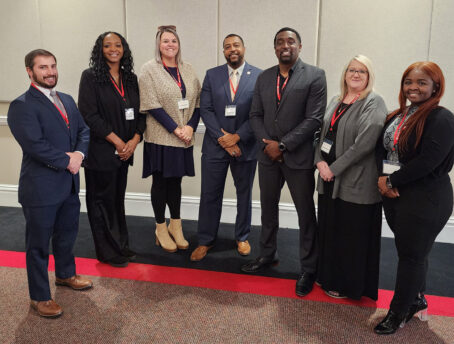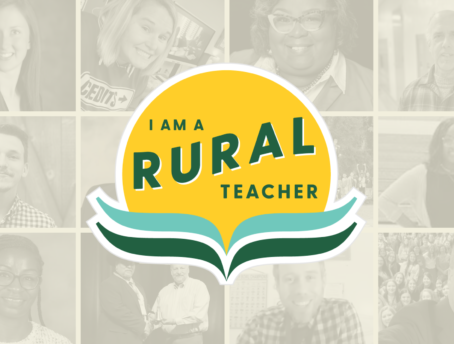Caring rural teachers are sorely needed in many communities, so how might we support future rural teachers before they even enter the classroom? RSC's New England Hub partners at University of Maine have a few great ideas - They recently hosted an inaugural future teacher pinning ceremony to recognize and celebrate the college’s new teacher candidates. Read more about two of these future teachers, who were recently spotlighted on the University of Maine website.
Growing up in Bar Harbor, Maine, Lanie Christianson says she always thought teaching might be in her future.
“I always loved school and I’m a kid-person. I love working with kids,” says Christianson, a junior elementary education major at the University of Maine.
But when she started at UMaine in 2017, Christianson chose English and math as her majors. After two years, she realized that neither of those areas of study were a good fit, nor was being a double major. She needed a break, so she transferred to Eastern Maine Community College, where she earned an associate’s in liberal studies. Then she started working as a preschool teacher at a daycare.
“It was so amazing, I just loved it,” Christianson says. “That’s when it hit me: Maybe I should go back to school to be a teacher, which is what I was meant to do all along.”
Christianson is one of 55 students invited to take part in the UMaine College of Education and Human Development’s first ever Pinning and Recognition Ceremony on Friday, Jan. 26.

The ceremony is meant to recognize and celebrate the college’s new teacher candidates, students who have reached the point in their academic career when they are able to start taking upper-level courses and have shown a commitment to becoming a teacher. It also comes at a time when schools in Maine and across the country are struggling with staffing levels.
The College of Education and Human Development’s teacher preparation programs are approved and accredited by the Council for the Accreditation of Educator Preparation (CAEP), and the Maine Department of Education, meaning students who graduate from them meet the highest professional standards in the field of education and are eligible for teaching certification in Maine and several other states upon graduation.
To earn teacher candidacy, UMaine education students submit a portfolio that includes their academic transcript with grades of a B or higher in their core lower-level courses. The portfolio also includes a field experience report that details at least five full days, or about 30 hours, that students spend observing a K-12 classroom or other educational setting related to their major.

Christianson says she spent part of winter break volunteering in the classroom at Holden Elementary School where she did her teaching observation. She has also been picking up substitute teaching jobs at K-12 schools near UMaine.
Matthew Eastman, a junior majoring in secondary education with a concentration in math, did his observation field experience at Asa Adams Elementary School in Orono. He was able to make connections at the Orono school district, RSU 26, where he has subbed at the elementary, middle and high school levels.
“It’s been great. I was a little nervous at first, but now it just feels really natural, and I’m gaining a lot of hands-on experience teaching,” he says.
Eastman is originally from Wells, Maine, but went to the Milton Hershey School in Pennsylvania from fourth grade through high school. The school, established by the family that started the Hershey chocolate company, provides a tuition-free education for about 2,000 low-income students each year.
When it came time to choose a college, Eastman wanted to come home to Maine. Like Christianson, he didn’t start out in education, but rather as a mechanical engineering major.
“I’ve always liked math and been pretty good at it, so everyone said I should be an engineer. But after three semesters I realized it wasn’t the right path for me,” says Eastman, who now hopes to become a high school math teacher. “I chose education because I like working with kids and I love to see kids get excited about math, and I want to have the same impact on kids that some of my teachers had on me.”
Now that they have achieved teacher candidacy, Christianson and Eastman are able to start taking courses that are even more hands-on, with opportunities to learn about aspects of teaching like lesson planning and classroom management.
“I’m really excited to have more field experiences and gain more confidence as a teacher,” says Christianson, who hopes to teach second grade when she graduates. “It’s awesome that we get to see all different grade levels and subjects, because it gives you an idea of what’s out there in terms of the variety of schools and classrooms.”
Thanks to our partners at University of Maine who lead our New England Regional Hub and Casey Kelly for sharing this story with us!




